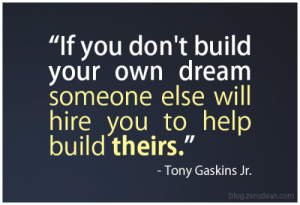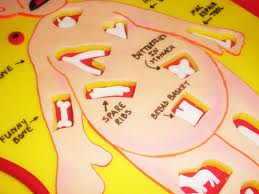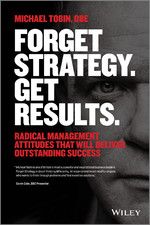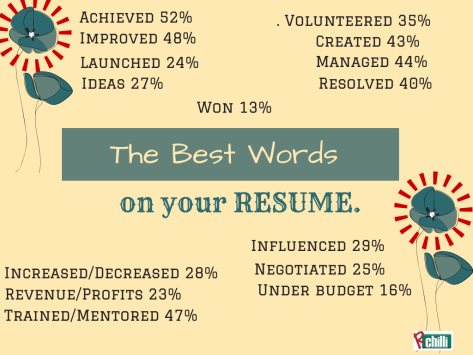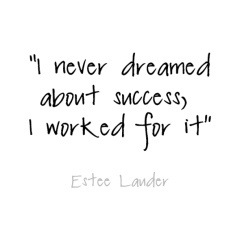
“There are three types of people in this world: those who make things happen, those who watch things happen, and those who wonder what happened.”– Mary Kay Ash, American Businesswoman
Due to some recent changes in the office, I have found myself faced with an increased workload and a seemingly insurmountable task list. The last few weeks have been a real eye opener to the ever growing need for organizations to remain efficient in challenging environments. “The show must go on” as they say, even when resources are lower than they have ever been. The results of the global market crash in 2008-2009 can be summed up in the following phrase “we’re doing more with less”. This once new reality continues, as corporations still downsize and scrutinize expenditures, simultaneously fighting to maintain their profitable and competitive edge. Interestingly, in December 2011, the Workforce Magazine published the following statement as a result of the madness:
In a survey of 600 U.S. workers that Workforce Management conducted with Workplace Options, a Raleigh, North Carolina-based provider of employee assistance program services, 55 percent of respondents said that their job responsibilities had increased as a result of the troubled economy. More than a quarter of workers (27 percent) said that their duties had doubled. Among those with extra work on their plate, 51 percent said the added duties have had a negative effect on their well-being.
Although published in 2011, similar statistics are being broadcast by industries today. Think about your own company, it’s likely that you or someone you work with is getting tired, feeling overworked and underappreciated. The results of which are increases in: stress related illness, larger turnover and more dissatisfied employees. All of these symptoms can be underpinned by one sweeping statement: Individuals in the workplace want to see success and feel valued- and seem to be willing to do almost anything to get it.
While there is a wealth of advice available to organizations and leaders, on how to deal with our new reality, there is very little focused on the employee, still fighting to become a big fish in the sea of career uncertainty.
Therefore, I thought I should give you my top 5 tips and tricks as to how you can feel successful and see an increase in productivity as an average employee within your organization.
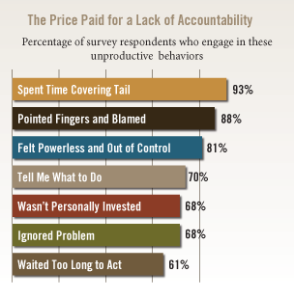
1. Be Accountable to Yourself and then Your Employer. Unlike granting authority, empowerment and accountability come from within. Unfortunately, people typically only worry about accountability when something goes wrong, resulting in the “run for cover” mentality. By always being brave enough to own your responsibilities or projects 100%- good or bad- accountability for results becomes something that everyone embraces as a helpful step in making things happen. It also earns you a lot of respect.
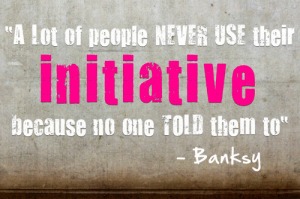
2. Take the initiative. Do you usually make things happen for yourself and your team? Or, do you wait for someone else to tell you what to do? When you show initiative, you do things without being told; you find out how to tackle things in the most efficient manner; you keep going when things get tough; and you see and take advantage of the opportunities that others pass by. This is highly valued trait in the workplace. If you try make this part of your nature or skill set, automatically you will become more valuable to your employer.

3. Unclutter your work space. Does this look familiar? First, focus on the top of your desk. You can sort through the drawers another time. Make a quick assessment — what do you have there? Papers? Post-it notes? A computer, phone, stapler, coffee cup, food, water bottle? Photos, trinkets? Dust? What else? Now make a very short mental list: what on your desk is absolutely essential? Pick 5 items, perhaps. Put the rest on the ground and file it or throw it away. Get a wipe and clean your desktop now it’s empty. Doesn’t that feel amazing?

4. Communicate: Seek Help. If you are struggling or discouraged with your performance, seek help immediately. Better to invest in and educate yourself now, rather than being found out and fired for your lack of value later.

5. Take a Break. If you want to be healthy and happy, take relaxing breaks where you can switch off and rejuvinate. Unplug from work, social media etc, and have some good old fashioned quality time with those you love.
All the best with implementing these tips and tricks. Let me know how you’re doing! I’d love to hear from you.
What helps you feel valued and successful? Do you have any tips to increase productivity and success at work?













